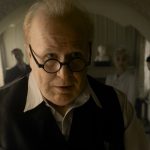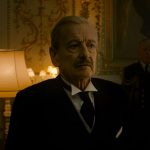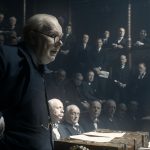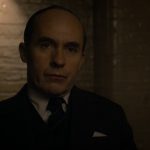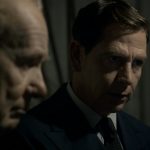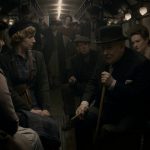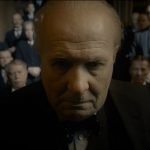Darkest Hour – 2017
First and foremost, I have to say that Gary Oldman is a genius. His performance as Winston Churchill in this film might have been the best performance of his career, and that is really saying something. His career as a film actor began in 1982 and has been going strong ever since. He is widely considered one of the best actors of his generation, and I have to agree. He took home the Oscar for Best Actor for this film, and I believe it was very well-deserved. He was simply brilliant.
The movie is about Winston Churchill’s first few weeks of his appointment as the British Prime Minister in May of 1940. It does not follow everything he did during World War II. The story being told is that of how he inherited the position from his predecessor, Neville Chamberlain, played by Ronald Pickup, and how he was the only politician directing the country toward war with Hitler, even though the German forces had not yet reached British soil.
You see, Churchill was not the Conservative Party’s first choice to fill the post. They wanted Viscount Halifax, played by Stephen Dillane, because they thought he would be a strong leader who would find a peaceful resolution with Hitler. However, Churchill is chosen because he is the only candidate whom the opposing party would accept, despite his questionable track record in past wars. Churchill is portrayed as one of the only men who never for an instant believed that Hitler would deal honorably and honestly with England. Because of this, Chamberlain and Halifax conspired against Churchill so that if he would not even consider peace talks with the Third Reich, they would step down from their positions as his advisors and call for a vote of no confidence in his leadership, and thus depose him.
So that was the main conflict of the plot. Churchill believes that war is inevitable, and Chamberlain and Halifax believe peace talks with Hitler is the way to go. Churchill’s involvement in the evacuation of Dunkirk was merely a subplot. Another was his relationship with his wife, Clementine, played by Kristin Scott Thomas. Yet another was his tenuous relationship with King George VI, played by Ben Mendelsohn. A fourth sub-plot was his companionable relationship with his personal secretary, Elizabeth Layton, played by Lilly James. And I’ll be honest, I was expecting more. I was expecting the story of how he led England through the entire war, the invasion, the air raids and the bombings, to their eventual victory. In that respect, the film’s resolution was a little anti-climactic, though maybe that was the fault of my own expectations and not the movie.
Chamberlain and Halifax almost have him convinced that he needs to open surrender negotiations with Mussolini, when the King, with whom he has never been on good terms, steps forward and gives Churchill and his war plans his support. Then Churchill gets on an underground train and talks to a random group of British citizens. Every single one of them tells him of their willingness to fight to defend their homes. These two things give Churchill the courage to defy his opponents and continue to call for war instead of peace. But by this time, the German attacks are imminent, and Chamberlain changes sides, giving Churchill the full support of Parliament.
So Churchill convinces someone to change his mind. That’s the climax. It was in keeping with the slow pace of the movie. It wasn’t terribly dramatic, especially since it is based on true historical events. We already knew what was going to happen. The fiery speeches he gave were what sold the ending, but were they enough to inspire me? Unfortunately, I don’t think so. But that doesn’t mean that it was a bad movie, just a slow one. It was worth it just to see Oldman portray the iconic figure so wonderfully.
So, how historically accurate were the events depicted in the film? Well, according to my research, it looks to be about half truth and half fiction. According to Wikipedia, historian John Brioch said, “The situation in 1940 was as dire as depicted, but liberties were taken with the facts. The on-screen shouting matches over possible peace negotiations were fictional. Churchill privately said he would consider terms offered by Hitler, but the film implies he never considered this. The ride on the London Underground was fictional, and there is historical evidence that most British people were not immediately inspired by Churchill’s speeches.”
Also, Adam Gopnik of the New Yorker was quoted as saying, “…when the Conservative grandee Lord Halifax challenged Churchill, insisting that it was still possible to negotiate a deal with Hitler, through the good offices of Mussolini, it was the steadfast anti-Nazism of Attlee and his Labour colleagues that saved the day – a vital truth badly underdramatized in the current Churchill-centric film.” That would be Clement Attlee, the man who would succeed Churchill as the Prime Minister. In the film he was played by David Schofield, and yes, his part was almost negligible. So once again, we see that truth is sacrificed for drama, but as we know, that happens all the time. It was still a good movie that I enjoyed watching, though I probably won’t be watching it again any time soon.
